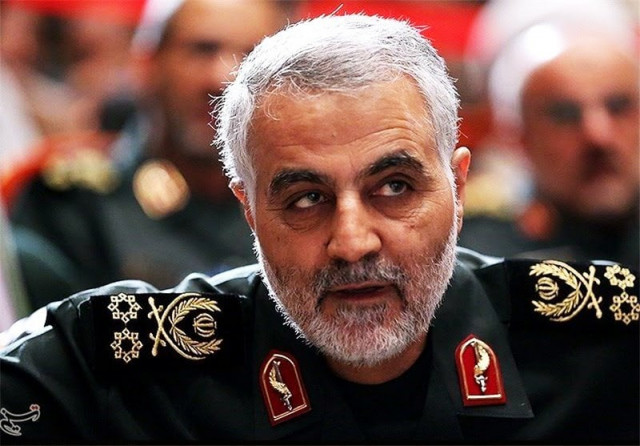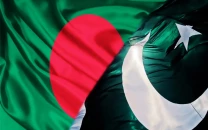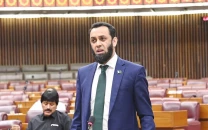Pakistan must weigh its options carefully over new ME crisis
Expert says the weak economy, greater scrutiny under FATF are negatively impacting its foreign policy

File photo of General Qassem Suleimani. PHOTO: IRNA
This was suggested by an expert during a talk on ‘Changing Regional Security and Implications on US-Pakistan Relations’. The talk had been organised by the Sustainable Development Policy Institute (SDPI) on Monday.
Research Professor Feroz Hassan Khan, from the Department of National Security Affairs at the Naval Postgraduate School at Monterey in California, said that owing to Islamabad’s precarious economic situation, unfortunately, it is not “sovereign enough” to make any independent decisions on whether to take sides or to stay neutral in the brewing conflict between Iran and the United States.
He said that Pakistan’s top national security issue is its economic security, without which the country will not be able to modernise its national security — which is imperative for its survival.
“Pakistan’s dependence on the International Monetary Fund (IMF) programme, aid and financial assistance from Saudi Arabia, and the Financial Action Task Force (FATF) conditions are negatively affecting the country on the foreign policy front,” he explained.
“The fraught situation in the Middle East is the ultimate test of Pakistan’s diplomacy,” he said, urging the country to keep certain priorities in view when taking decisions, such as continuing efforts in the Afghanistan peace process, preventing a conflict with India and remaining relevant to China’s Belt and Road Initiative (BRI) by successfully completing the China-Pakistan Economic Corridor (CPEC) projects.
He said that those who support US President Donald Trump’s decision to kill the top Iranian commander argue that it was an attempt from the US to re-establish deterrence in the region and to stop Iran from crossing a red line.
Elaborating on the reasons that led to the US targeting Soleimani now, Prof Feroz said that there could be multiple reasons behind the decision. This includes domestic politics in the US and his bid to survive impeachment.
“Regional security and power dynamics are changing and becoming redefined, and Pakistan must remain mindful of these changes,” he added.
With Iran having already announced plans for retaliation, Prof Feroz painted three possible scenarios in any resulting US-Iran conflict. This includes asymmetric warfare — with Iran mainly using its ties with Hezbollah, launching a fresh arms race in the region and thirdly, greater nuclear proliferation with Tehran backing out of the Nuclear Deal-JCPOA (Iran has already walked back from its commitments in the deal).
“Any of these reactions will be a huge set back to the international security, and certainly will have serious implications for Pakistan,” he said.
While responding to a question on unilateralism by the US in the current Middle East crisis, Prof Feroz said that the world is currently witnessing the era of a strong-henchman which uses its power to suppress opposition, and this is exactly what Trump has done in the US and what Narendra Modi is doing in India and the disputed Himalayan territory of occupied Kashmir.
To a question on the Non-Proliferation Treaty (NPT), Prof Feroz was of the view that Iran will remain in the NPT as it has limited capacity to conduct nuclear tests and continues with its nuclear programme, albeit as per provisions of the treaty.
SDPI Executive Director Dr Abid Qaiyum Suleri said that at the moment the situation in the Middle East becomes concerning and worrisome.
“Pakistan has to be very careful while weighing its options over the current conflict between Iran and the US,” he said, adding that Pakistan has to take care of its own interests first.
Published in The Express Tribune, January 7th, 2020.



















COMMENTS
Comments are moderated and generally will be posted if they are on-topic and not abusive.
For more information, please see our Comments FAQ